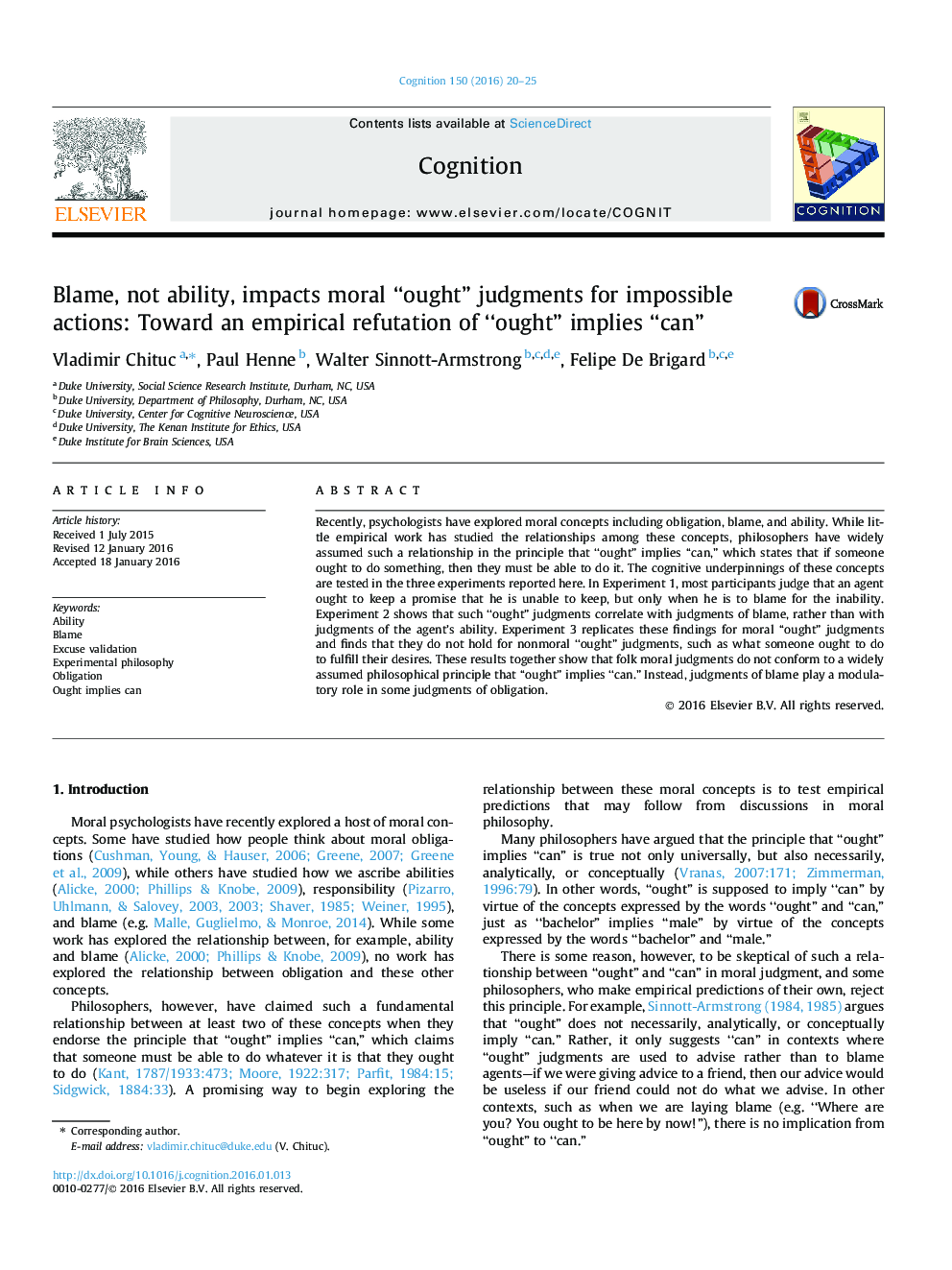| کد مقاله | کد نشریه | سال انتشار | مقاله انگلیسی | نسخه تمام متن |
|---|---|---|---|---|
| 7286204 | 1474117 | 2016 | 6 صفحه PDF | دانلود رایگان |
عنوان انگلیسی مقاله ISI
Blame, not ability, impacts moral “ought” judgments for impossible actions: Toward an empirical refutation of “ought” implies “can”
ترجمه فارسی عنوان
سرزنش، نه توانایی، اخلاقیات را تحت تاثیر قرار می دهد؟ قضاوت برای اقدامات غیرمنتظره: در قبال تجدید نظر تجربی از یک اشکال؟ به معنای کانا؟
دانلود مقاله + سفارش ترجمه
دانلود مقاله ISI انگلیسی
رایگان برای ایرانیان
کلمات کلیدی
توانایی، سرزنش اعتبار عذرخواهی فلسفه تجربی، تعهد، باید بداند، می تواند،
موضوعات مرتبط
علوم زیستی و بیوفناوری
علم عصب شناسی
علوم اعصاب شناختی
چکیده انگلیسی
Recently, psychologists have explored moral concepts including obligation, blame, and ability. While little empirical work has studied the relationships among these concepts, philosophers have widely assumed such a relationship in the principle that “ought” implies “can,” which states that if someone ought to do something, then they must be able to do it. The cognitive underpinnings of these concepts are tested in the three experiments reported here. In Experiment 1, most participants judge that an agent ought to keep a promise that he is unable to keep, but only when he is to blame for the inability. Experiment 2 shows that such “ought” judgments correlate with judgments of blame, rather than with judgments of the agent's ability. Experiment 3 replicates these findings for moral “ought” judgments and finds that they do not hold for nonmoral “ought” judgments, such as what someone ought to do to fulfill their desires. These results together show that folk moral judgments do not conform to a widely assumed philosophical principle that “ought” implies “can.” Instead, judgments of blame play a modulatory role in some judgments of obligation.
ناشر
Database: Elsevier - ScienceDirect (ساینس دایرکت)
Journal: Cognition - Volume 150, May 2016, Pages 20-25
Journal: Cognition - Volume 150, May 2016, Pages 20-25
نویسندگان
Vladimir Chituc, Paul Henne, Walter Sinnott-Armstrong, Felipe De Brigard,
